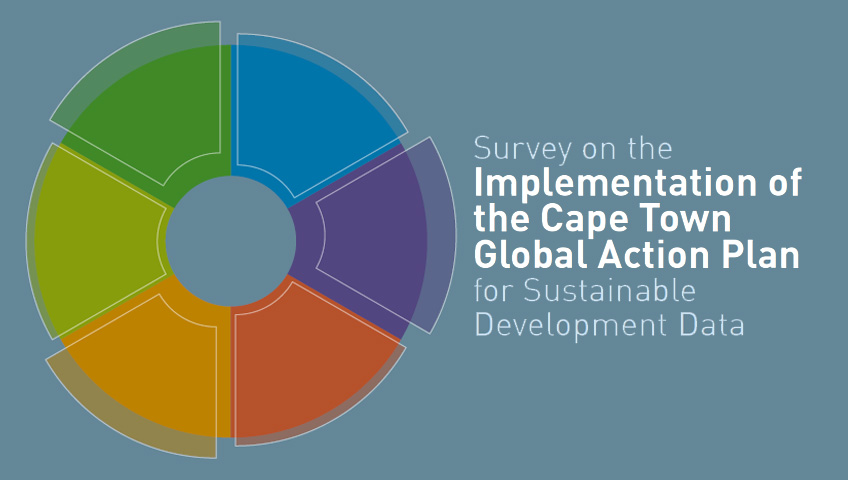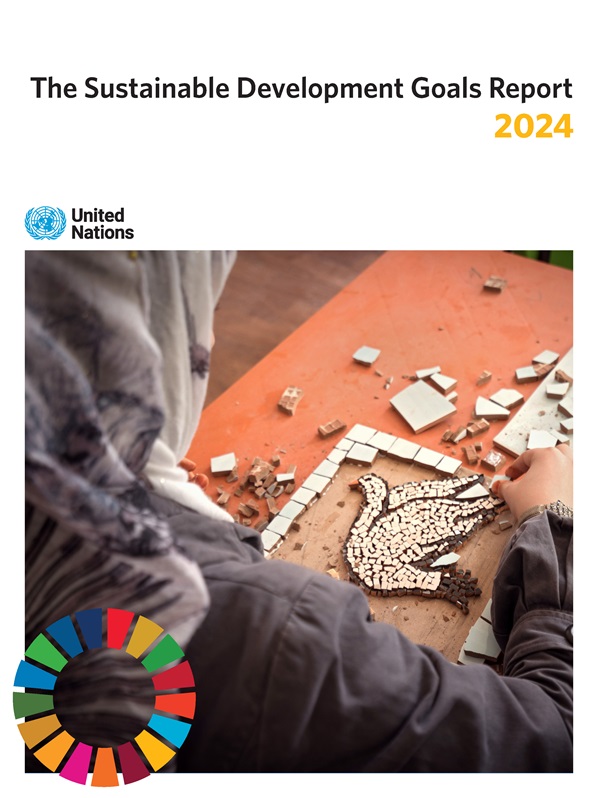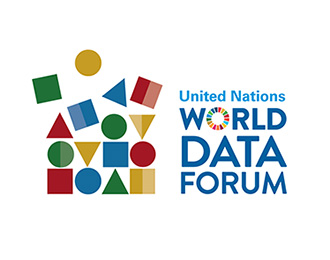Events
International Workshop on the Monitoring of the Sustainable Development Goals
The United Nations Statistics Division (UNSD) and the National Bureau of Statistics of China (NBS) jointly organized the International Workshop on the Monitoring of the Sustainable Development Goals virtually from 12 to 13 January 2022. The workshop will bring together about 18 countries in the Asia-Pacific regions, including some Small Islands Developing Countries (SIDS), along with experts from UN-ESCAP, UNICEF, UNESCO, FAO, UNDP, UN Women, Africa Union, ADB, and CBM Global.
The objective of the workshop is to strengthen the understanding of national statistical systems on various aspects of the SDG monitoring, including data collection and coordination for SDGs, monitoring SDGs in different domains, data innovations and initiatives, data disaggregation, and capacity building. The workshop will also provide a space to share knowledge on international, regional and national approaches to monitoring the SDGs and good practices in strengthening statistical capacity and improve data availability for SDGs.
Resources for participants
Presentations
-
Agenda item 1. Global SDG monitoring
-
1.1 Introduction to the Global SDG Indicator Framework and global SDG monitoring - UNSD (PDF)
-
1.2 The SDG global indicator database website - UNSD (PDF)
-
1.3 National SDG data platforms - UNSD (PDF)
-
Agenda item 2. Thematic and regional SDG reporting
-
2.1 Leveraging SDG monitoring to achieve results for children - UNICEF (PDF)
-
2.2 Monitoring Progress of SDG4 at global and regional level - UNESCO (PDF)
-
2.3 Regional SDG monitoring in Asia and the Pacific - ESCAP (PDF)
-
Agenda item 3. Thematic, regional and national SDG monitoring
-
3.1 SDG monitoring in China (PDF)
-
3.2 Measuring SDG 16 Just, Peaceful and inclusive institutions - UNDP (PDF)
-
3.3 The National SDG Data Platform of Bangladesh (PDF)
-
3.4 Experience On Development of CamStat - Cambodia (PDF)
-
3.5 SDG Data Platform in Lao (PDF)
-
3.6 SDG indicators under FAO custodianship estimation of missing data and data validation procedures - FAO (PDF)
-
3.7 SDG monitoring in the Kyrgyz Republic - Kyrgyzstan (PDF)
-
3.8 SDG monitoring in Viet Nam (PDF)
-
Agenda item 4. Leaving no one behand and data disaggregation
-
4.1 Practical Guidebook on Data Disaggregation for SDGs - ADB (PDF)
-
4.2 Small area estimation for SDGs - UNSD (PDF)
-
4.3 Talking points - Building data partnerships and capacity building for persons with disabilities - IDA (PDF)
-
4.4 Toolkit on Producing and Using Disaggregated Gender Statistics - UN Women (PDF)
-
Agenda item 5. Data innovations and initiatives for SDGs
-
5.1 New Opportunity in Crime Statistics for SDGs - UNODC (PDF)
-
5.2 Data Innovation Initiatives for SDGs - Indonesia (PDF)
-
5.3 Small Area Estimation of Poverty through Non-conventional Data - Bangladesh (PDF)
-
5.4 Use of Non-Traditional Data Sources for Philippine SDG Indicator Monitoring - Philippines (PDF)
-
Agenda item 6. SDG monitoring in China
-
6.1 China's Implementation of the 2030 Agenda for Sustainable Development (PDF)
-
6.2 CBAS: A New International Platform of TFM for SDGs (PDF)
QUICK LINKS
- 2030 Agenda for Sustainable Development
- SDGs Database
- 2025 Comprehensive Review Process
- Survey on the Implementation of the Cape Town Global Action Plan for Sustainable Development
Data

- SG's progress report 2024
- Statistical Annex 2024
- SDGs report 2024

- Gender Snapshot 2024
- UN Data Commons for the SDGs
-

- Medellin Framework for action on data for sustainable development
- Hangzhou Declaration
- Bern Data Compact
- Cape Town Global Action Plan for Sustainable Development Data
- Dubai Declaration
- Global data community's response to Covid-19
- Statistical Commission